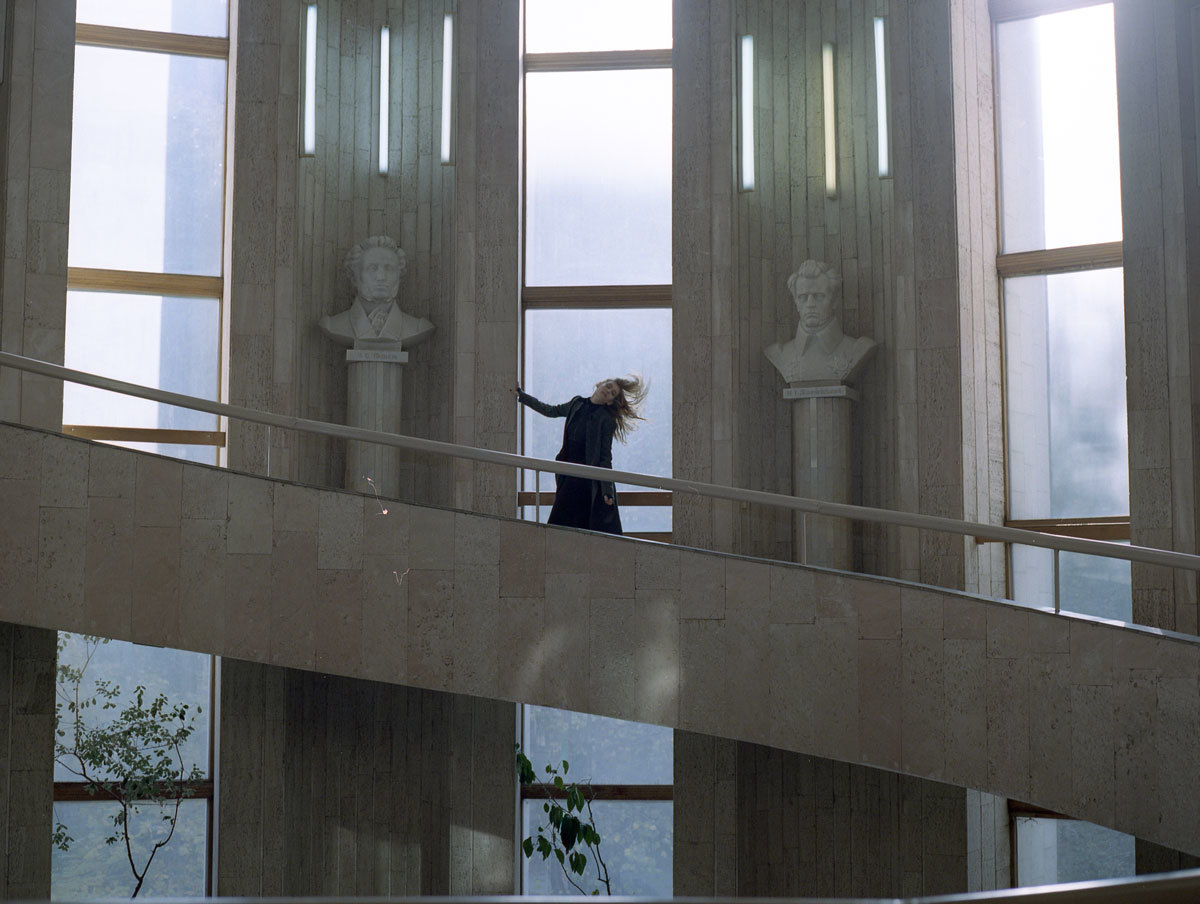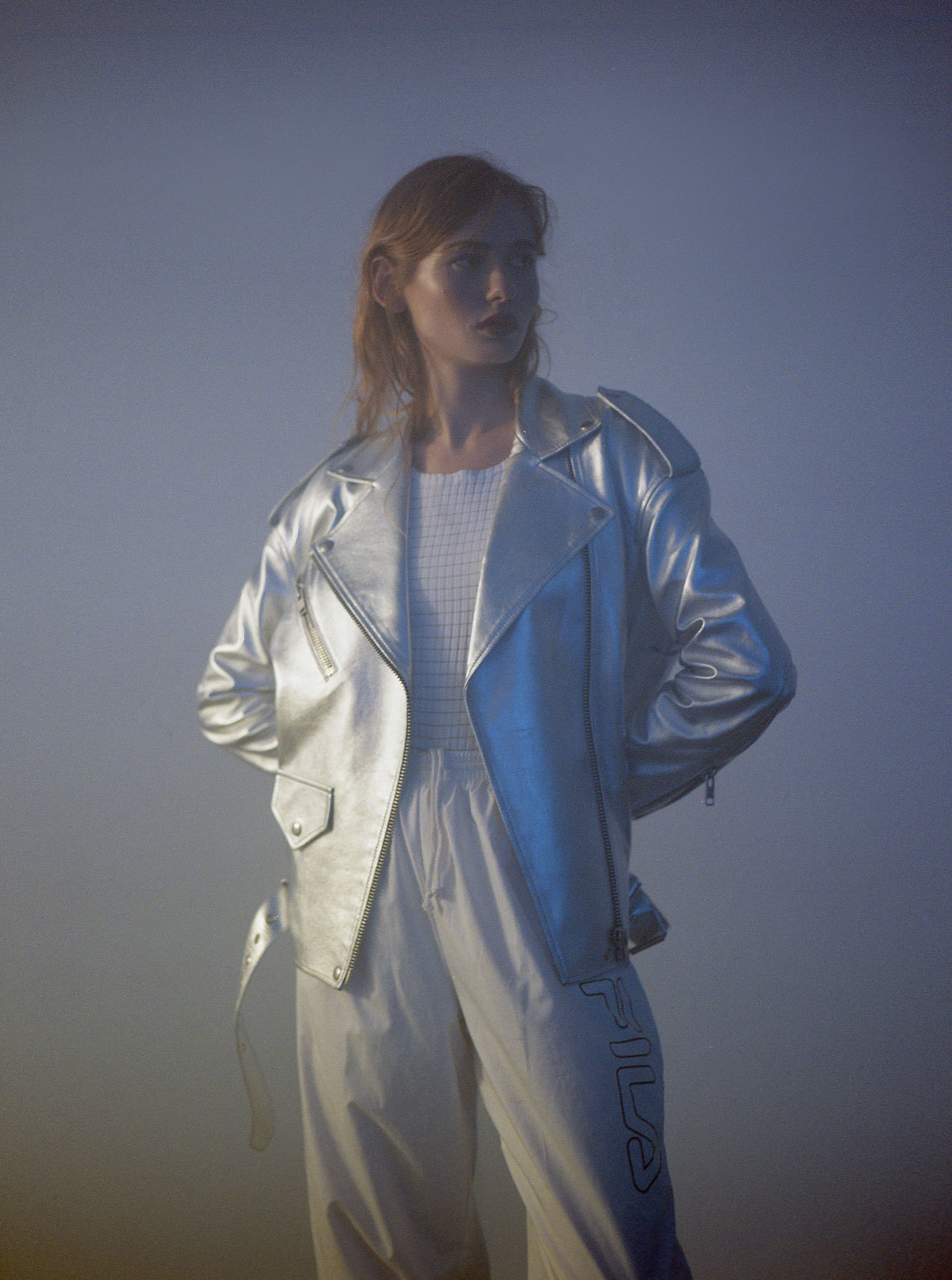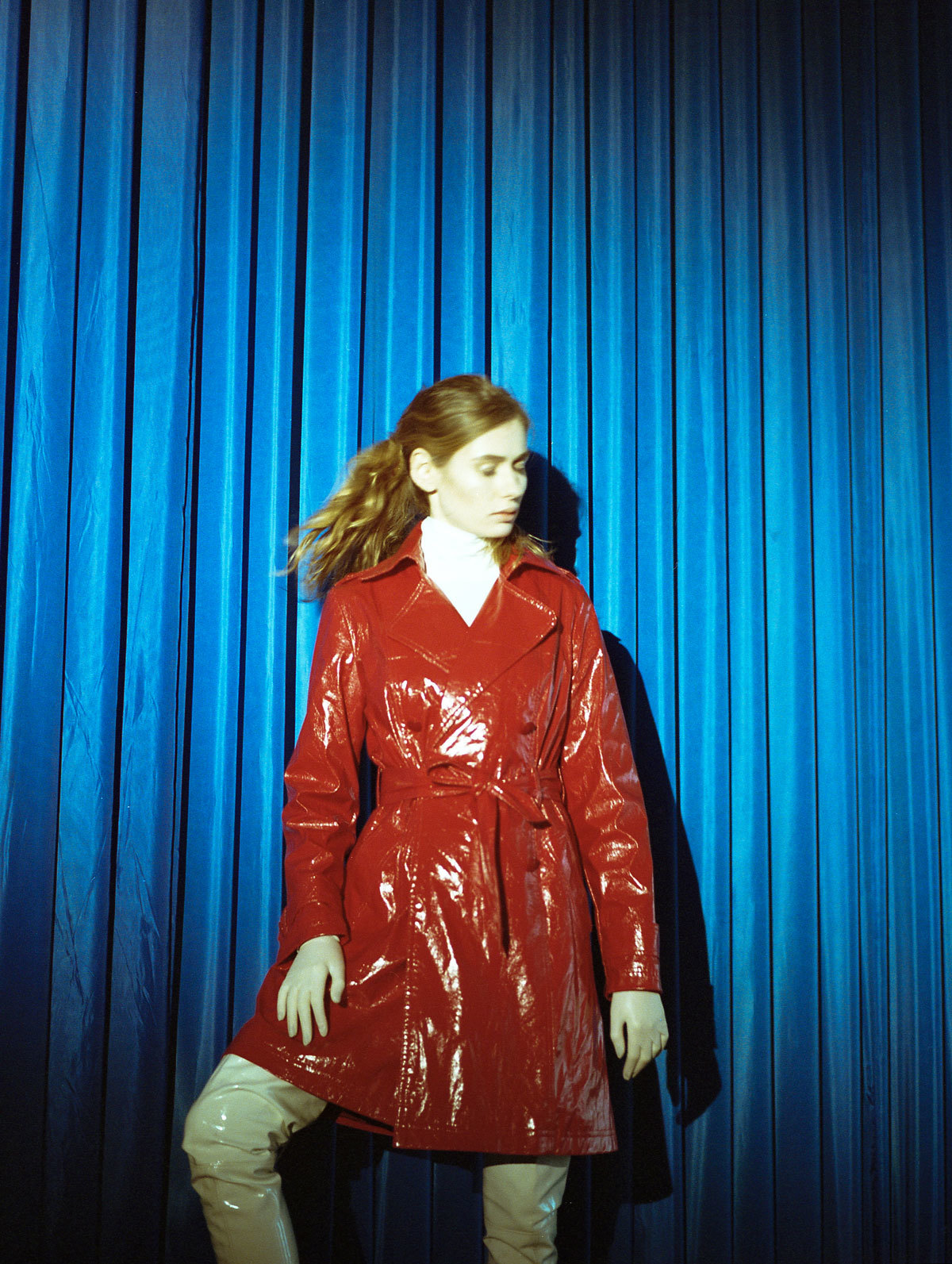Today we recognize pop music as a powerful force of great cultural significance. The creative output of Beyoncé, Rihanna, Lady Gaga, et al is something we endlessly obsess about — but also a good reflection of the modernity we exist within. In the post-Soviet world, where the air space is largely dominated by commercial and often lackluster acts, this conversation would be out of place — until the home-grown star was born this summer. Kiev-based Kristina Bardash, aka Luna, got the new generation restlessly lip-synching to her catchy tunes.
In her new video for the title track from her Grustnyy Dens EP (“sad dance” in English) Luna dances through the grand halls of Soviet library in Kiev. Dressed in white thigh-high boots and glittering trench coat, she looks more Joan of Arc than life and soul of the party. Her act is a mix of a tormented heart, detachment, and club-influenced synthy sounds. There is also something rough around the edges about her, something awkward, like a combination of high heels and white Fila track pants. This is the look and sound the new generation in Ukraine (followed by Russia and Latvia) could certainly relate to. Luna’s rise started from a few tunes slipped out on social media with lo-fi videos that were easily confused with lost recordings by some long-forgotten 90s pop heroine. On the day of release of her debut album Magnets in April of this year, Luna performed live — for the first time — to an audience of over 1000 in Kiev. Behind her she had her three band-members, the power of digital word of mouth, and songs strung through with her personal trauma.
Although she’s described as the voice of a generation in Ukraine, Luna’s career started in L.A., the spiritual home for all songs that talk of glamorous sadness. She moved to L.A. at the age of 20 with her husband and had her son there — beaches, palm trees, and sunsets on Venice Beach soon became the set for emotional turbulence and immigrant isolation. “I wrote my first songs in L.A., the city still holds my most intimate, my favorite memories,” Luna explains. “This is where my child was born, and the most intense moments of my relationship took place. We left everything in Kiev, we had a small child, didn’t know anyone, we didn’t really know how to love each other. In one moment when I was distressed I found some old poems I’d written, and suddenly had a strong desire to go to the studio and record.”
During her time in L.A., Kristina felt a strong connection to Ukraine which fueled the creative impulse. After the revolution of 2014, she came back with her family. “We felt a very strong desire to return to Kiev. I got my ideas looking back at Ukraine, and really wanted come back and create, change something here. So I started to write again.”

To start, Kristina planned her project as an experiment in combining elements of spoken word and music, rather than straightforward pop. After studio sessions and vocal lessons she gained the confidence in her voice — but sound was not the only element of Luna’s emerging persona she was interested in. Before turning to music, Kristina used to work with video and photography and often produced visuals for performers signed up with her husband’s production company. She would create the visual persona for the artists — experience that came in handy when she started Luna.
Kristina art-directs her videos herself, controlling every aspect of her image — a strong example of self-defined performer with a visual narrative to offer (similarly to Russian rising star Kedr Livanskiy) and a role model for young women in Ukraine. “People often think of me as a sort of a face for a commercial investment but the truth is, Luna was born as a DIY project,” Kristina explains. “I am not alone in creating the sound and vision though — there is a whole team of creative people behind the project with whom it just clicked.”
The reasons for Luna’s success among Russian-speaking youth, however, lies not only in her timely style and sound, but in history of the region’s pop music. Her songs have the irony, naive sincerity, and effortless style last heard and seen in the 90s, from the emerging acts of then-revolutionary post-Soviet pop. Kristina is openly fascinated with her 90s predecessors. “Before the dissolution of the Soviet Union, there were young people who were very hungry for music, but living behind the Iron Curtain, they very rarely got foreign records, they were only available via Poland, or from friends who travelled abroad, or on underground bootlegs. People would listen to those records endlessly, and then they started making music. It was honest and not commercial — there wasn’t a situation when you had to get 30 million views in a week. I grew up on music from the 90s, acts like Linda, Guests from the Future, early songs by Max Fadeev. It was the new wave, they’d buy synths and just do what they felt like. Unfortunately hardly any artists kept that way, but what they made then still remains relevant,” she muses.
Channeling the energy of change and the spirt of freedom and playfulness that reverberated through the 90s, Luna’s songs fit well with contemporary Ukrainian youth scene. She collaborates with Kiev’s emerging fashion talents like Drag and Drop, Anton Belinskiy, Ksenia Schneider, Sasha Kanevski, casts kids from the Cat-b modeling agency for her videos, sings (half-ironically) about the adoration of a guy’s sneakers at a rave as a start of a love story. She provides the soundtrack for the new wave of romanticism, which could appear rooted in the 90s nostalgia, but which actually is about the new beginnings. “Why is this happening now?” Kristina asks. “Because young people remember the 90s, when the pop culture renaissance occurred, and today they’ve got energy for the revolution of the mind, they’ve got taste, and have many Western examples to get inspired by. But mainly, because they appreciate their own authentic culture”.

Credits
Text Anastasiia Fedorova
Photography Armen Parsadanov
Styling Sasha Mazhara, Lusine
Art direction Aline Gontar
Make up Yulya Zalesskaya
